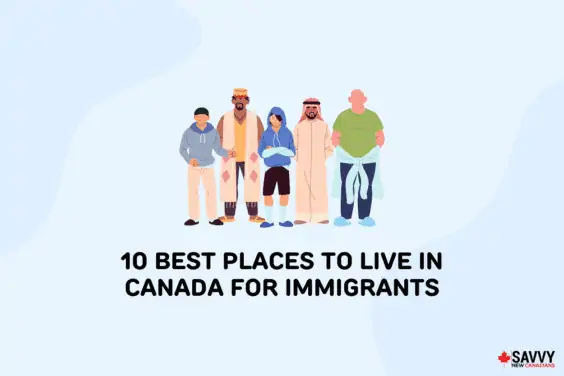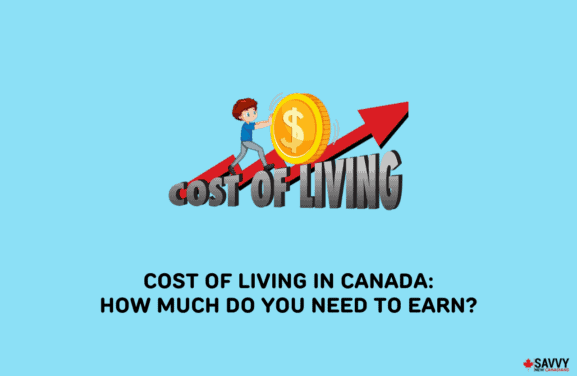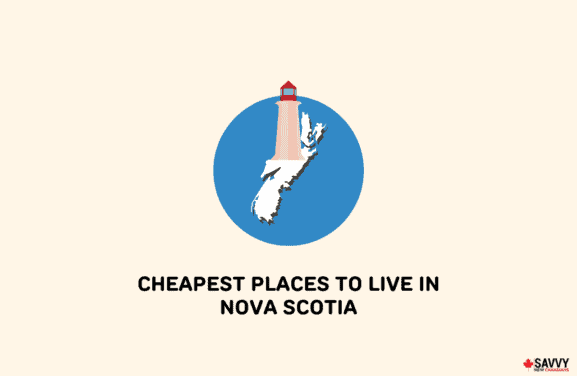If you have experienced being in debt, you will know that it can feel like a never-ending spiral. Nobody ever plans on being in debt, but high-interest rates and missed payments can quickly stack up.
The good news is that there are solutions for being in debt in Canada. While there are no direct government debt relief programs, there are plenty of support and credit counselling services.
Whether you are seeking student debt forgiveness or credit card forgiveness in Canada, there is always a way to get help.
This article will discuss debt forgiveness in Canada and your options if you find yourself burdened with debt.
Key Takeaways
- Some of the best strategies to get out of debt are to consolidate your debt, create a budget, request a lower interest rate, and join debt management programs.
- The government’s debt relief programs include consumer proposals, bankruptcy declarations and the student debt forgiveness program.
- You can consolidate your outstanding debt balances to a single, low-interest credit card with interest rates that are as low as 8.99%.
How to Get Out of Debt
Consolidate Your Debt
One of the best solutions for debt forgiveness in Canada is to consolidate your debt. What is debt consolidation? Debt consolidation is when you combine all of your debts into just one convenient payment, ideally with a lower interest rate.
The simplest way to consolidate your debt is to take out a personal loan or line of credit to pay off your existing debts. Once they are paid off, you can then focus on just repaying this new single form of debt.
Create a Budget
More often than not, a spending budget can help to keep your finances in check. For a lot of Canadians, it is not a saving problem. It is a spending problem. Spending more than you earn is a recipe for your debt to compound rapidly.
By creating a budget, you can cut down on money going out and focus more on putting that money toward paying down your existing debt.
Request a Lower Interest Rate
For some people, this might seem like a last-resort option. Calling the creditor directly and asking for a lower interest rate can provide much-needed breathing room for your debt.
Does it work? It can, but be prepared to be insistent, and you might even need to request to speak to a manager.
Debt Management Programs
There are Canadian debt management programs for those who require professional assistance in dealing with their debt.
These services can help to consolidate your debts and even request lower interest rates from creditors or complete debt forgiveness.
Note that there is typically a fee attached to these services, but creditors tend to be more supportive of those in these DMPs.
Debt Settlements
Debt settlements are negotiations that are held with your creditor to settle for a portion of your total debt. The settlement figure is reached based on your current financial situation.
Since this does require a lump sum payment to the creditor, it usually isn’t an option for many Canadians in debt. Those who do reach a debt settlement can expect to pay anywhere from 20% to 80% of the outstanding debt.
Government Debt Relief Programs
Consumer Proposals
A consumer proposal is a legally binding agreement between you and the creditor to reduce the amount of your debt. These proposals need to be made through a Licensed Insolvency Trustee (LIT) and can either reduce your debt or extend the time needed to pay back the debt.
In addition to the consumer proposal, you will also be required to undertake other conditions, including attending counselling and advising of any address changes.
There are some downsides to a consumer proposal, including it showing up on your credit history and being a public court record. It is also only for a total debt of less than $250,000, not including a mortgage in Canada.
Bankruptcy
Finally, you can always declare bankruptcy in Canada as a last resort. If you successfully declare bankruptcy, you will no longer need to pay back your debts, your wages will not be garnished, and any lawsuits against you will be dropped.
If this sounds too good to be true, it is. The repercussions of declaring bankruptcy are harsh and they include being assigned the lowest possible credit score in Canada, as well as potentially having your property seized, and the creditors going after payment from your spouse or co-signers.
Student Debt Forgiveness In Canada
Student loans are another source of debt and anxiety for millions of Canadians. While the benefits of pursuing further education are clear, student loan debt can be crippling for the first few years of employment.
The good news is that there is student debt forgiveness in Canada from both the Provincial and Federal governments.
These programs are meant to assist students who come from low or middle-income families. Household family income is the first factor that is considered, along with your study program, Province of residence, and number of dependents.
There are also specific student debt forgiveness programs for doctors and nurses who are often saddled with high debt from medical schools or post-graduate studies.
It is important to know that Provincial student debt forgiveness only applies to Provincial student loans, and Federal student debt forgiveness programs apply to Federal student loans.
Each student debt forgiveness plan in Canada is different in terms of the amount of forgiven student loans.
Credit Card Debt Forgiveness In Canada
One of the more complex types of consumer debt to deal with in Canada is credit card debt. As of March 2023, Canadians have racked up a record high of $91 billion in credit card debt. This number will likely continue to grow as higher interest rates and high inflation continue to impact Canadian consumers.
Why is credit card debt so devastating for Canadians? Most credit cards in Canada have an interest rate of more than 19%, which usually compounds daily. Before you know it, your credit card debt can completely consume your finances.
Luckily in Canada, credit card debt forgiveness can help reduce or even eliminate your outstanding debt.
If you are early in your debt accrual, you can try calling the credit card company to negotiate a lower interest rate. You can also get a professional to do this for you or enter into a Debt Management Program.
If things get bad, you can even apply for a debt settlement or consumer proposal through the court system.
Credit Card Debt Consolidation
There is a strategy for credit card debt consolidation. This is when you transfer your outstanding debt balances to a single, low-interest-rate credit card. This is effectively the same as taking out a loan or line of credit as we discussed earlier.
Keep in mind that if you do not pay off the outstanding balance, you will continue to accrue interest on your new card, albeit at a lower rate.
Here are some of the best low-interest credit cards in Canada:
| Low-Interest Credit Card | Interest Rate |
| Scotiabank Value Visa Card | 12.99% |
| MBNA True Line Gold Mastercard | 8.99% |
| Scotiabank American Express Platinum Card | 9.99% |
| BMO Preferred Rate Mastercard | 12.99% |
| CIBC Select Visa Card | 13.99% |
Finally, you can be proactive and create a debt repayment plan for your credit card debt. Since credit card debt typically has one of the highest interest rates, it is a good idea to prioritize paying this debt off first.
Building your debt repayment plan around focusing on reducing your credit card debt. Once your credit card debts are paid off, tackling your remaining debt balances should be more manageable.
Are There Free Canadian Government Grants To Pay Off Debt?
Unfortunately, the Canadian government does not currently have any grants or programs to pay off consumer debt. There are numerous services that the government supports and sponsors, including a long list of debt relief services.
These services are licensed by the government and hold much weight when negotiating settlements or repayment plans.
There are legal ways to combat debt, such as the aforementioned consumer proposal or declaring bankruptcy. These methods do require the process to go through the courts and will stay on your permanent record.
The closest thing to a government debt relief program is student debt forgiveness in Canada. Other than that, there are no free Canadian government grants to pay off debt.
FAQs
If the CRA believes you are trying to leave Canada without paying off your debt, they can order the immediate payment of these debts. The CRA can even seize your property or assets in the worst scenarios. The good news is that unless you have any criminal fines or child support payments in your debt, you likely won’t be detained when you re-enter the country.
In Canada, a creditor or debt collector have six years to collect payment from you. After that, the statute of limitations kicks in, and they cannot take legal action against you. Depending on the Province you live in, this statute of limitations can be even shorter. For example, debt forgiveness in Ontario states that any unpaid debt must be removed from a consumer’s credit report after seven years. That said, debt collectors can still call you several years after a debt is due.
Yes, the debt collectors can follow you to another country or sell your debt to a collector in your new location. Will most debt collectors go through this trouble? Probably not. Still, they can take legal action against you or your family members if you leave for another country with outstanding debt.
It depends on what you owe money for. If it is student loans or credit card debt, then there isn’t a reason for you to go to jail. But if it is something like tax evasion, you can be arrested and serve some time in jail.
Yes! Creditors can apply to the court for a garnishing order that will award them a chunk of your salary every time you get paid. They can also apply to freeze your bank account and assets until you agree to repay any debts you owe.



